Möchten Sie Ihr Team effizienter machen und Projekte besser organisieren? Die richtige Confluence-Vorlage strukturiert Ihren Arbeitsbereich, macht Inhalte leicht auffindbar und spart wertvolle Zeit. Als erfahrener Confluence-Nutzer weiß ich: Vorlagen boosten Produktivität und Selbstvertrauen bei neuen Herausforderungen.
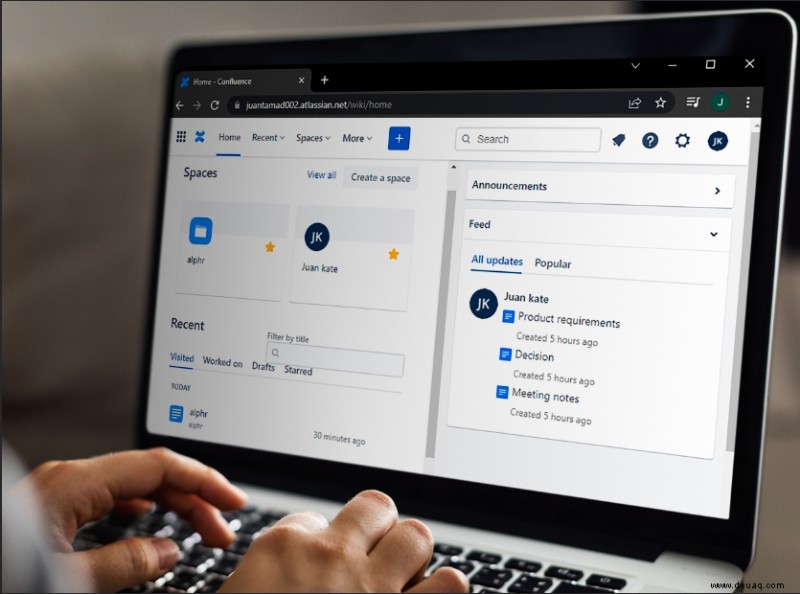
Lesen Sie weiter und lernen Sie, wie Sie maßgeschneiderte Vorlagen erstellen, die perfekt zu Ihrem Workflow passen.
Arbeiten mit Seitenvorlagen in Confluence
Sie müssen nicht bei jeder neuen Seite von null starten. Nutzen Sie Vorlagen als Basis für Seiten mit vorgefertigten Inhalten. Erstellen Sie sie über Blaupausen, Add-ons oder selbst – für maximale Anpassungsfähigkeit.
Was sind Space-Vorlagen und globale Vorlagen?
Confluence bietet zwei Vorlagen-Typen:
- Space-Vorlagen: Nur in einem bestimmten Space verfügbar. Als Space-Admin erstellen oder bearbeiten Sie sie über den Space-Verwaltungs-Bildschirm in Confluence Cloud.
- Globale Vorlagen: Site-weit zugänglich. Bei Fehlern einfach zum Original zurückkehren.
So erstellen Sie eine Vorlage in Confluence
Im Confluence-Editor bauen Sie Vorlagen auf und fügen Variablen für Anpassungen hinzu – diese werden als ausfüllbare Felder gespeichert.
Space-Vorlage hinzufügen:
- Gehen Sie in den Space und klicken Sie unten in der Toolbar auf „Space-Tools“.
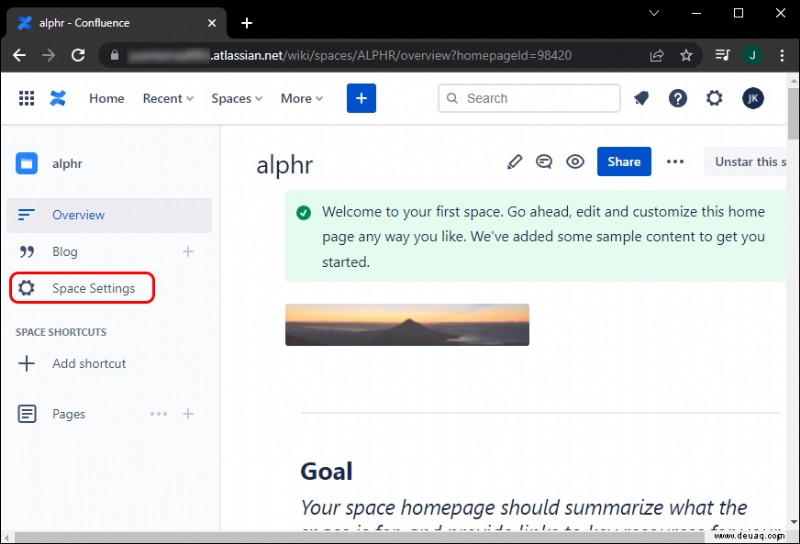
- Wählen Sie „Inhaltstools“.
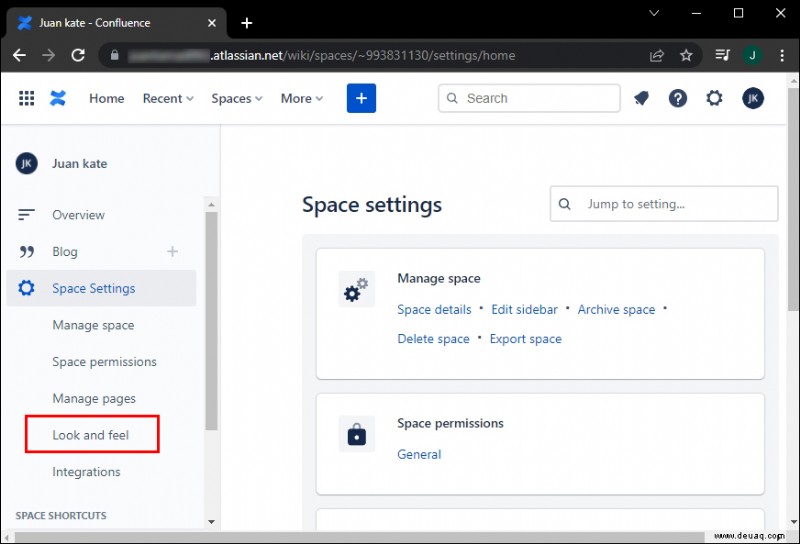
- Klicken Sie auf „Vorlagen“.
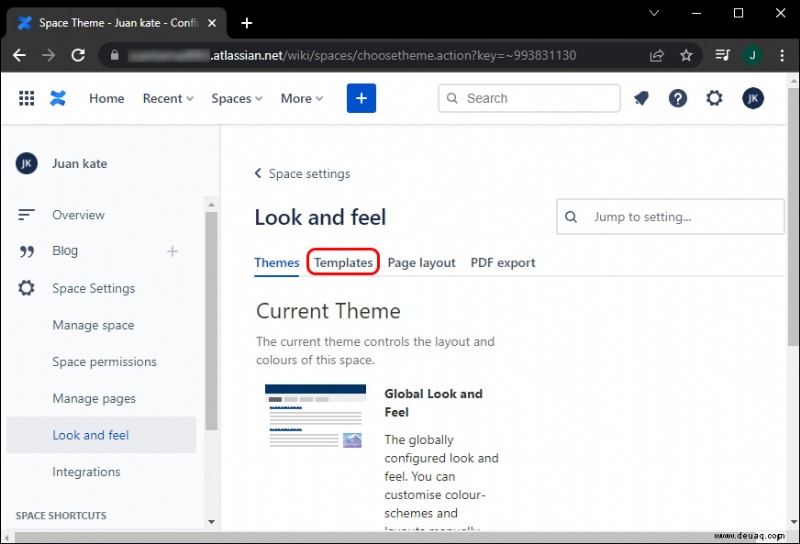
- „Neue Vorlage erstellen“.
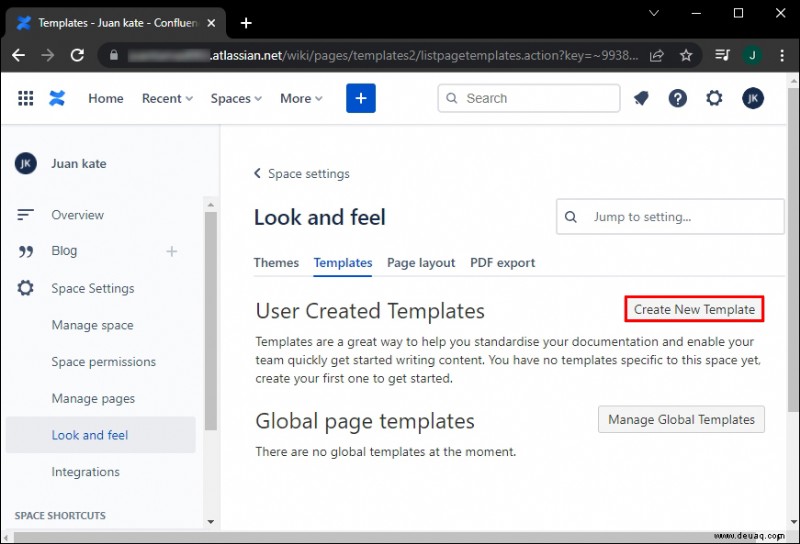
Als Site-Admin erstellen Sie globale Vorlagen für alle Spaces:
- Klicken Sie oben rechts auf das Einstellungsrad.
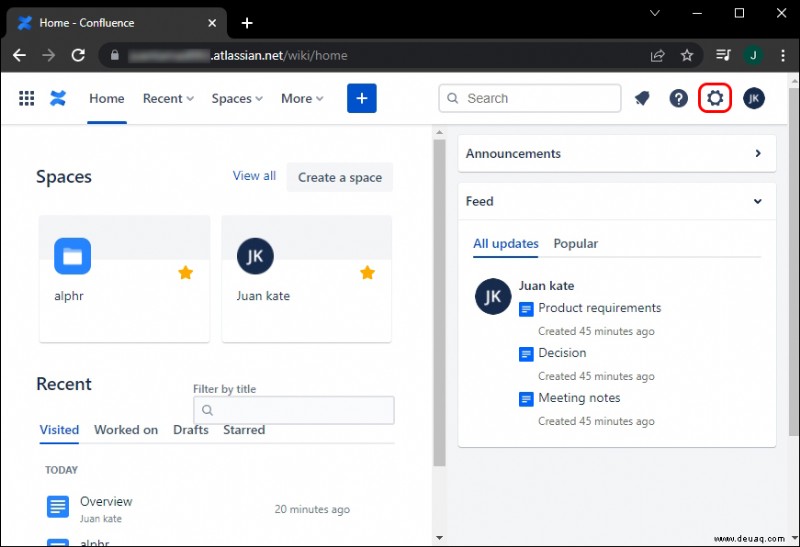
- „Allgemeine Konfiguration“.
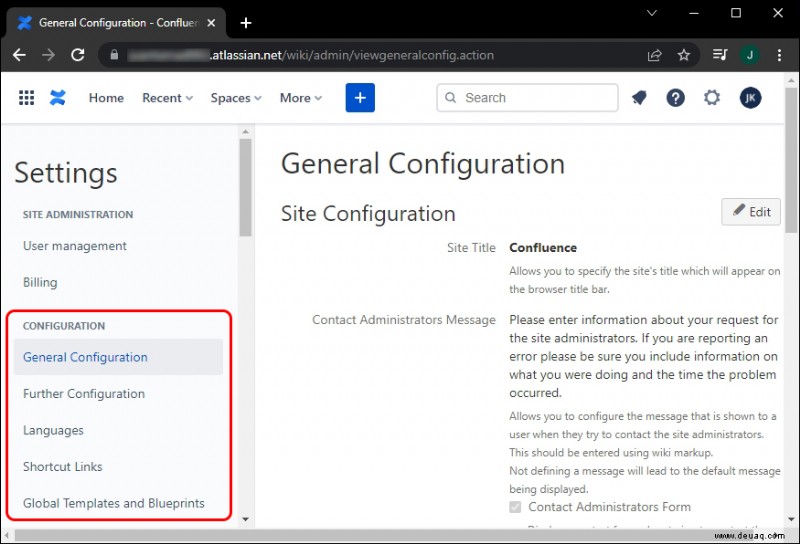
- „Globale Vorlagen und Blaupausen“.
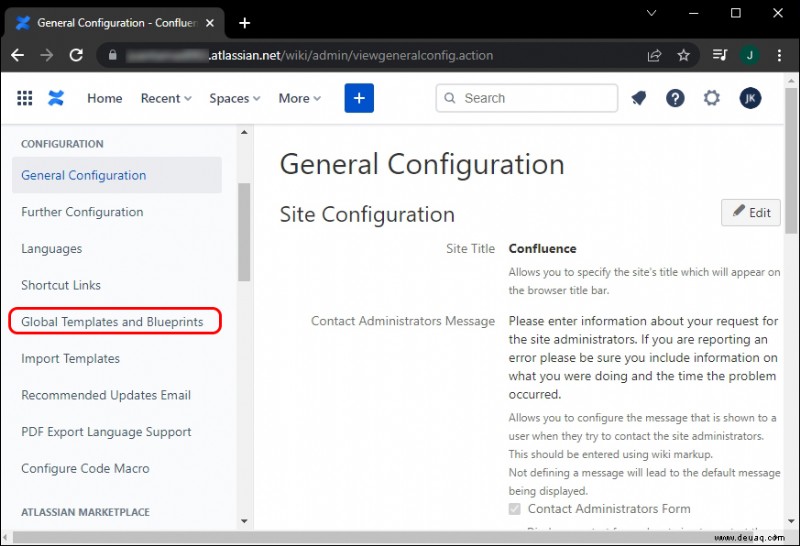
- „Globale Seitenvorlage hinzufügen“.
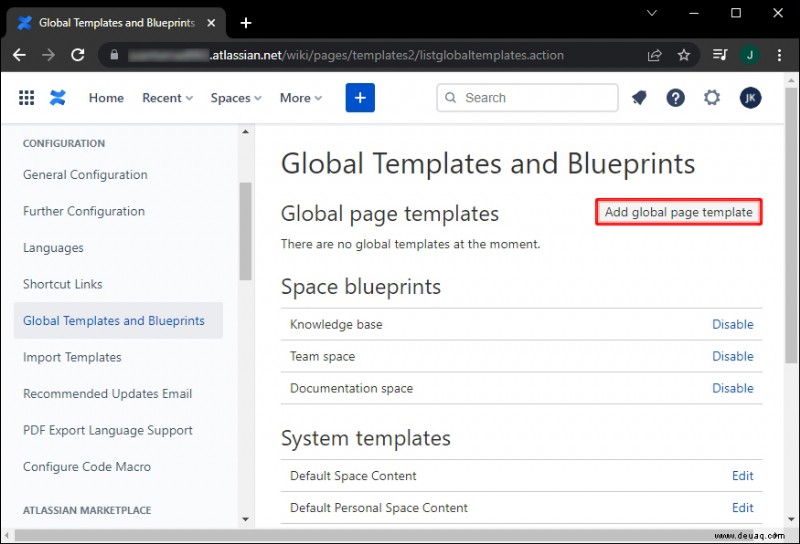
Vorlagenbeschreibung hinzufügen
Beschreibungen machen Vorlagen in der Galerie sichtbar und erklären passende Projekte.
Für globale Vorlagen:
- Einstellungen öffnen.

- „Globale Blaupausen und Vorlagen“.

- Bleistift-Icon klicken.
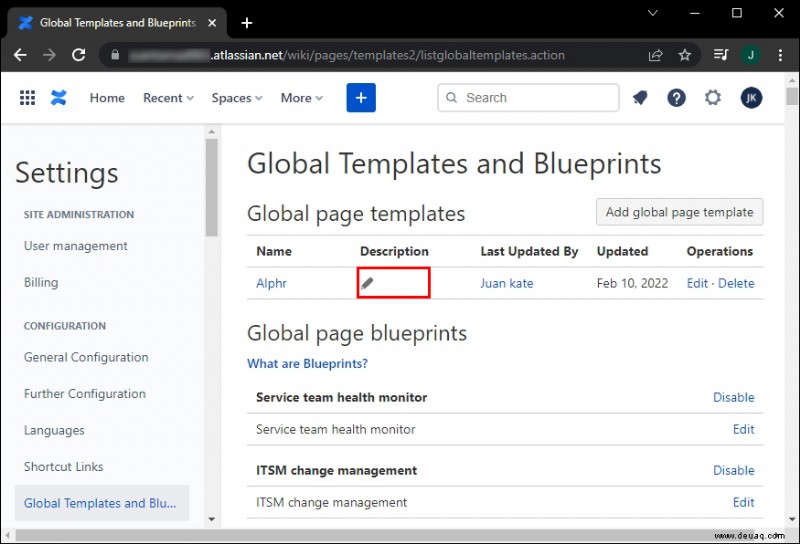
Hinweis: Keine Anhänge oder Bilder, aber Platzhalter, Variablen und Labels möglich.
Variablen zu einer Confluence-Vorlage hinzufügen
Variablen erzeugen ausfüllbare Felder oder Auswahllisten. Gleiche Namen synchronisieren Inhalte automatisch.
- „Vorlagen“ in der Toolbar.
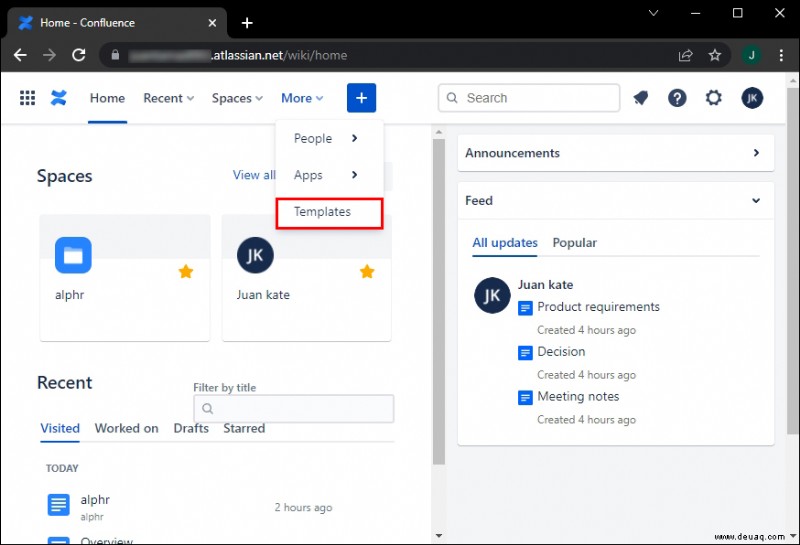
- „Neue Variable“ oder bestehende wählen.
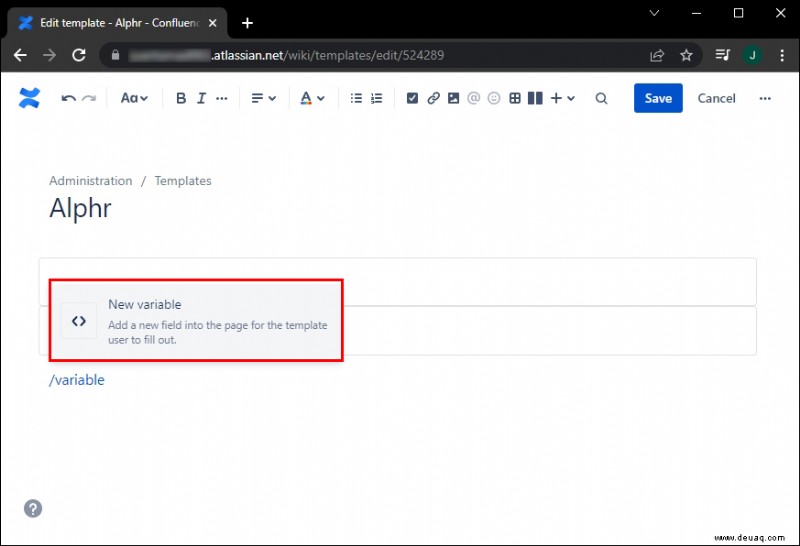
- Namen eingeben.
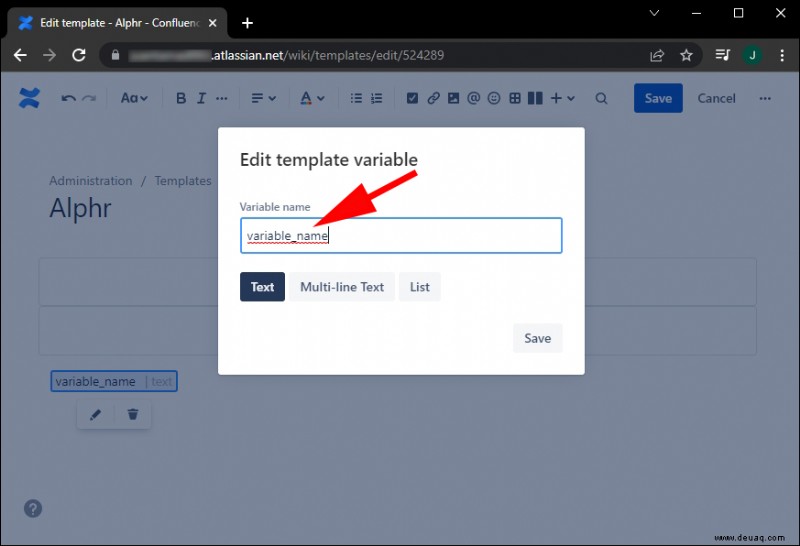
- Enter drücken.
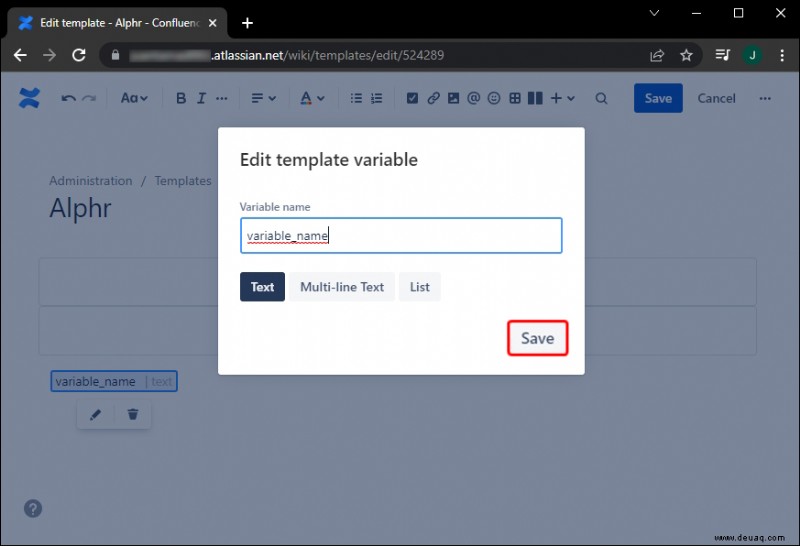
Typ bearbeiten: Text, Mehrzeilig oder Liste (Optionen per Komma trennen).
Labels zu einer Confluence-Vorlage hinzufügen
Labels organisieren und tracken Seiten (nur Space-Admins).
Im Legacy-Editor:
- Labels-Icon neben Breadcrumbs.
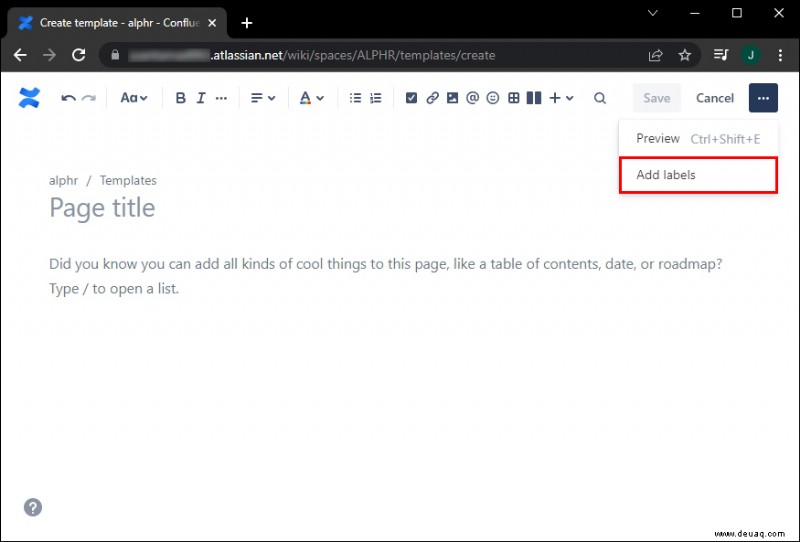
- Labels eingeben, mit Leerzeichen trennen.
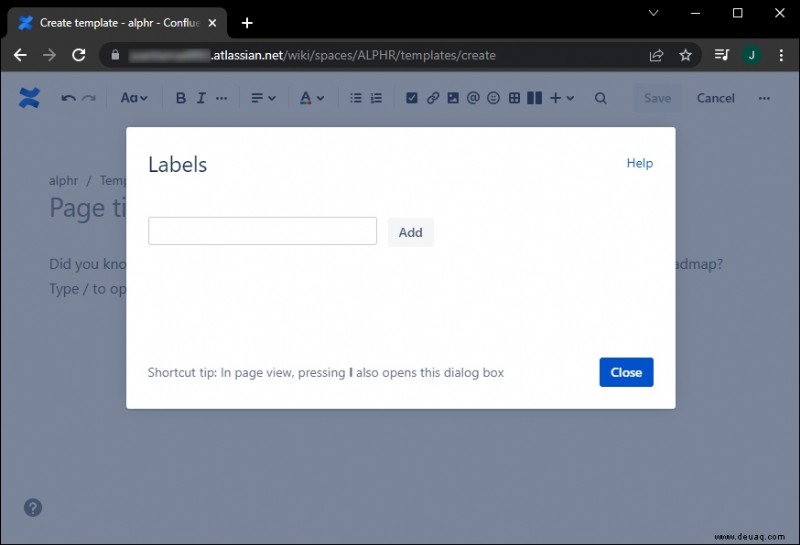
- „Hinzufügen“.
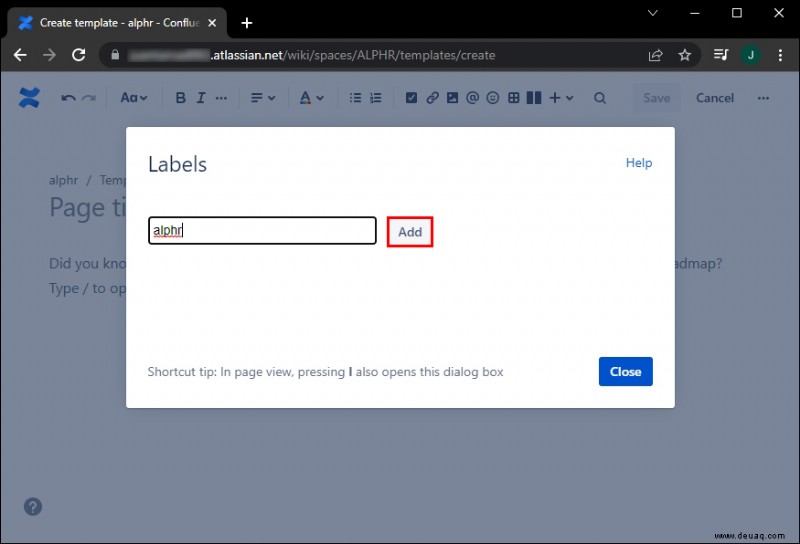
- „Schließen“.
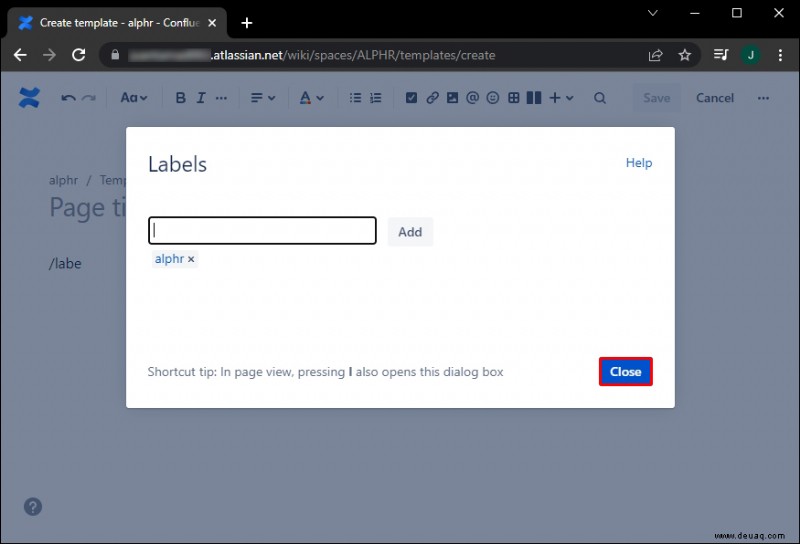
Im neuen Editor:
- Breadcrumbs → „Labels hinzufügen“.
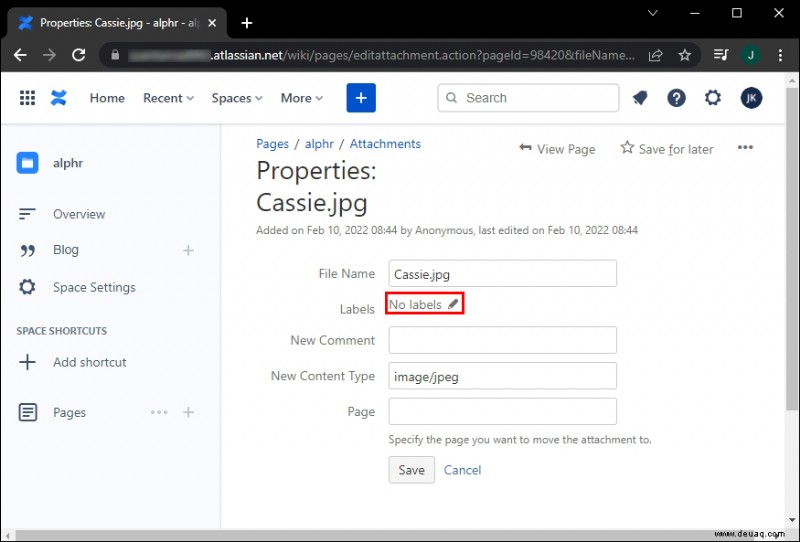
- Labels eingeben.
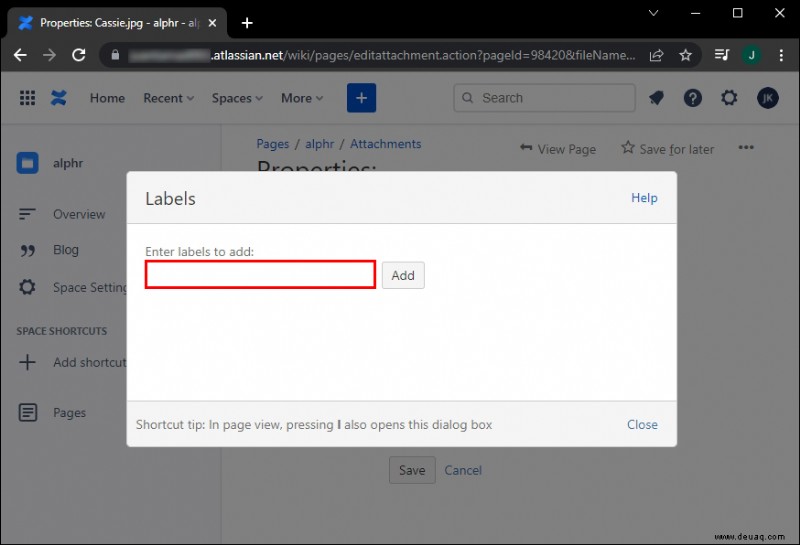
- „Hinzufügen“.
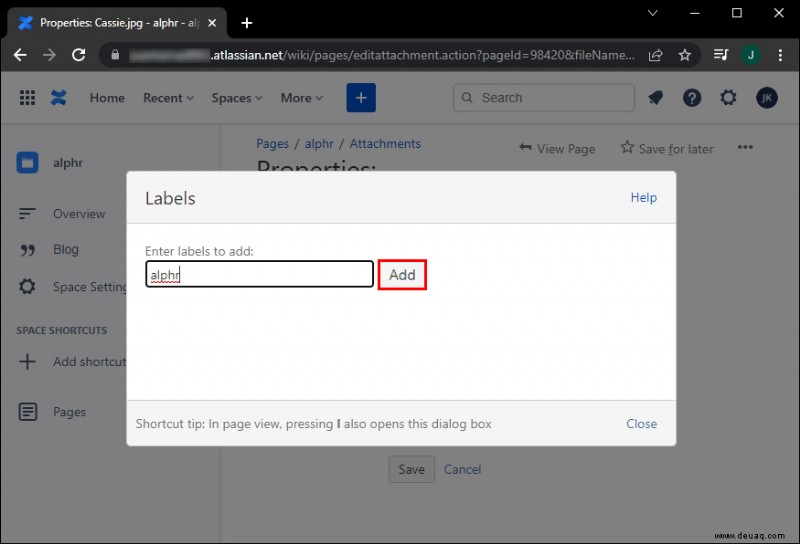
- „Schließen“.
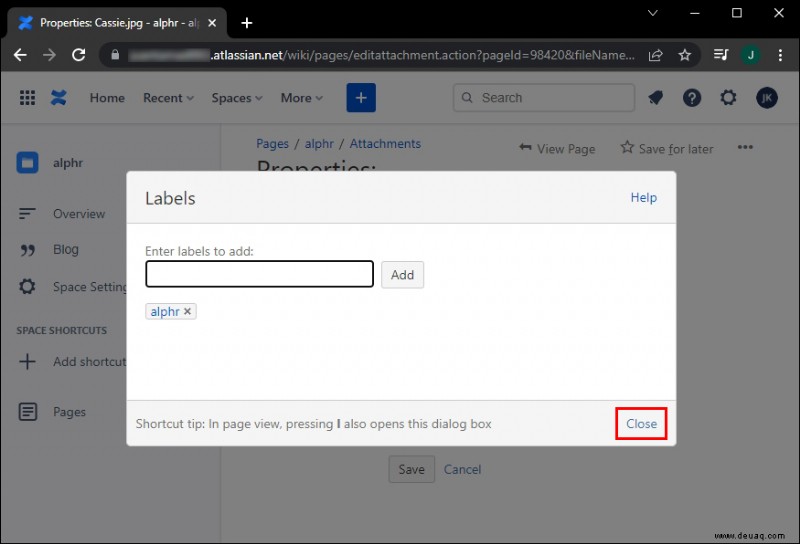
Platzhaltertext hinzufügen
Anweisungen für Editoren, unsichtbar für Leser.
Legacy-Editor:
- „+“ → „Platzhaltertext“.
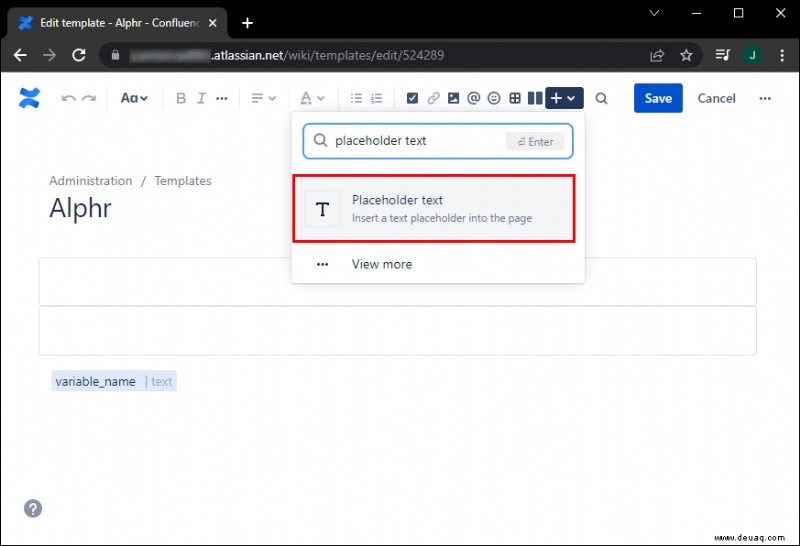
- Text eingeben, Enter.
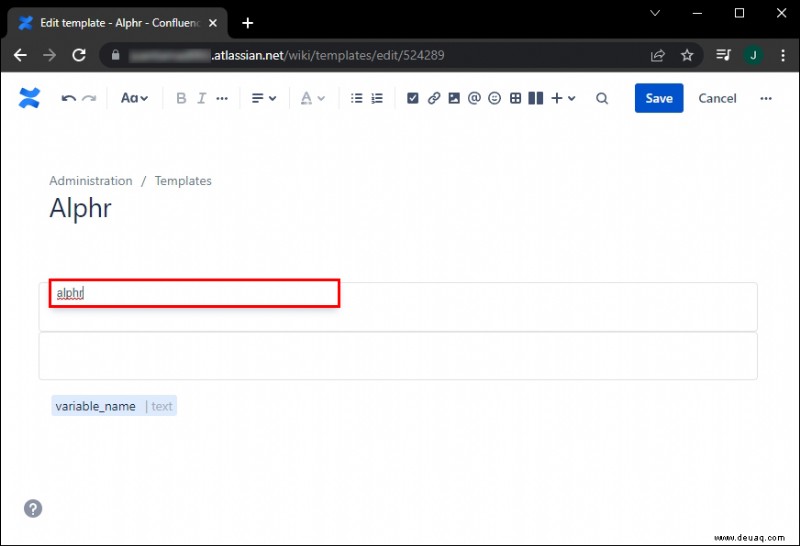
Neuer Editor:
- „/placeholder“, Enter.
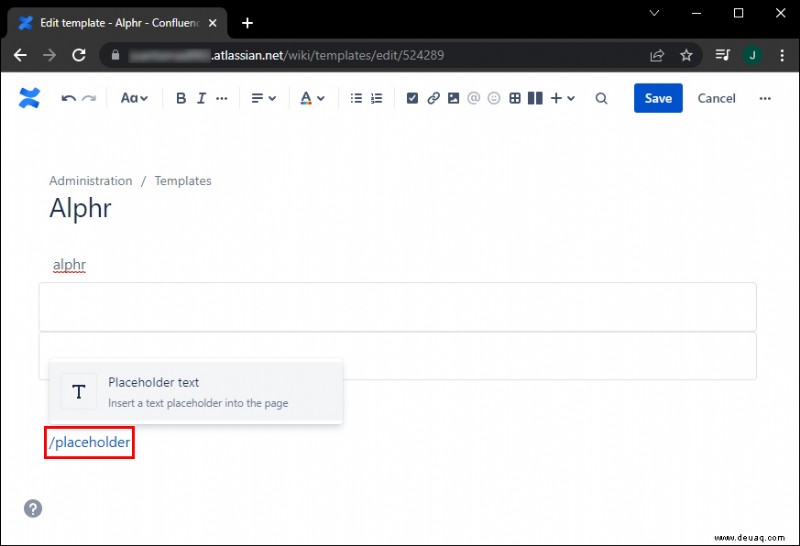
- Text eingeben, Enter.
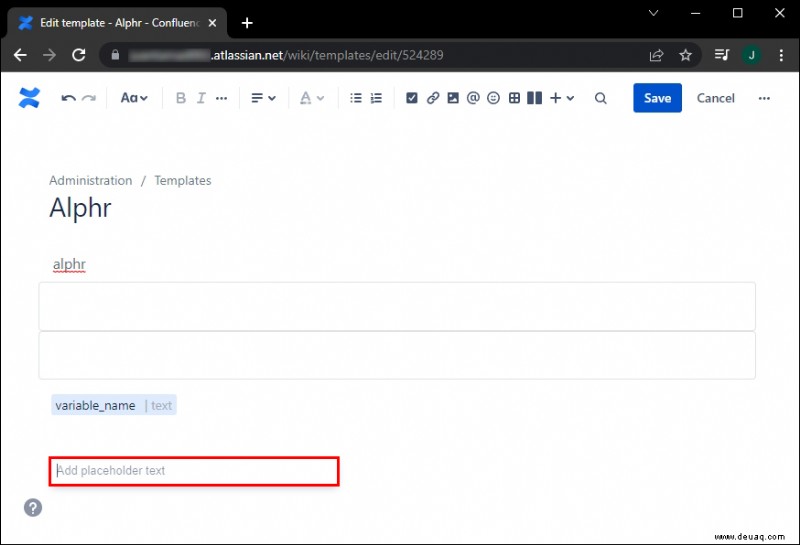
Vorlage bewerben
Space-Admins heben Vorlagen oben in der Liste hervor.
- Space öffnen.
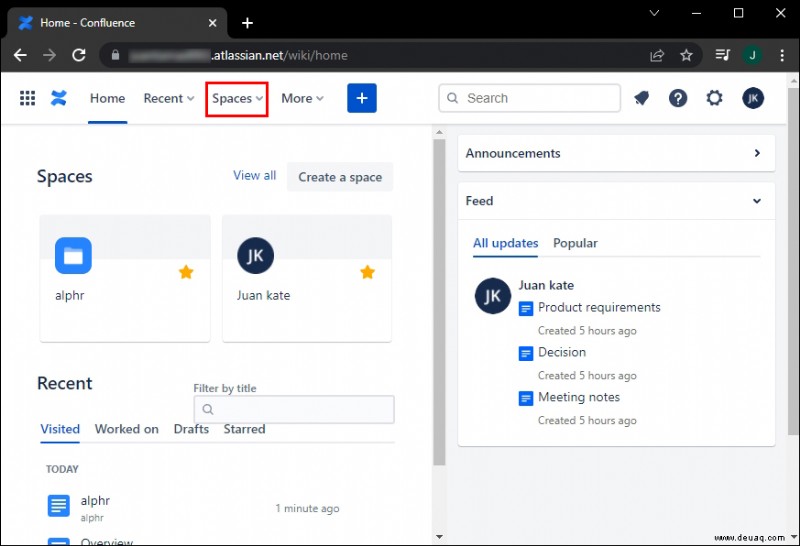
- „Space-Einstellungen“.
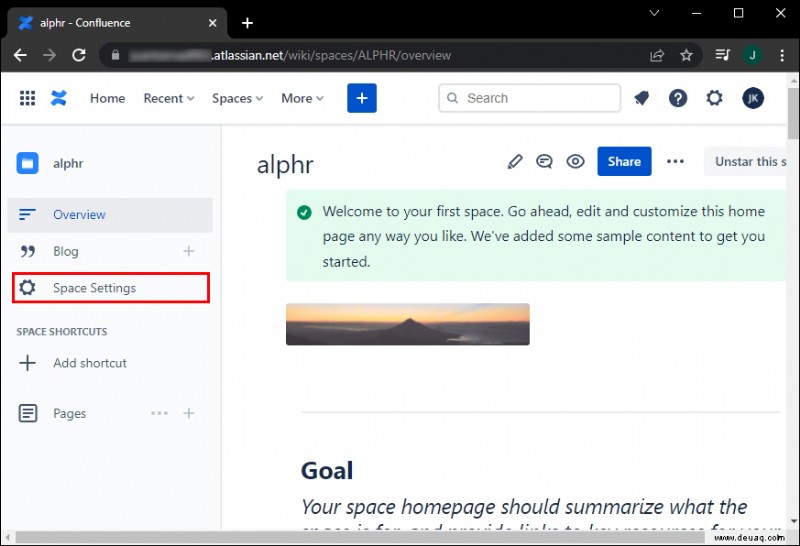
- „Look and Feel“ → „Vorlagen“.
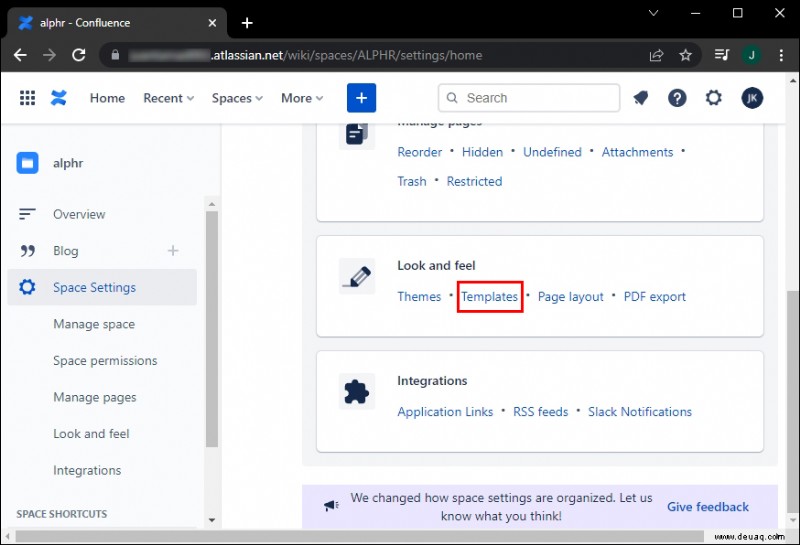
- Vorlage wählen.
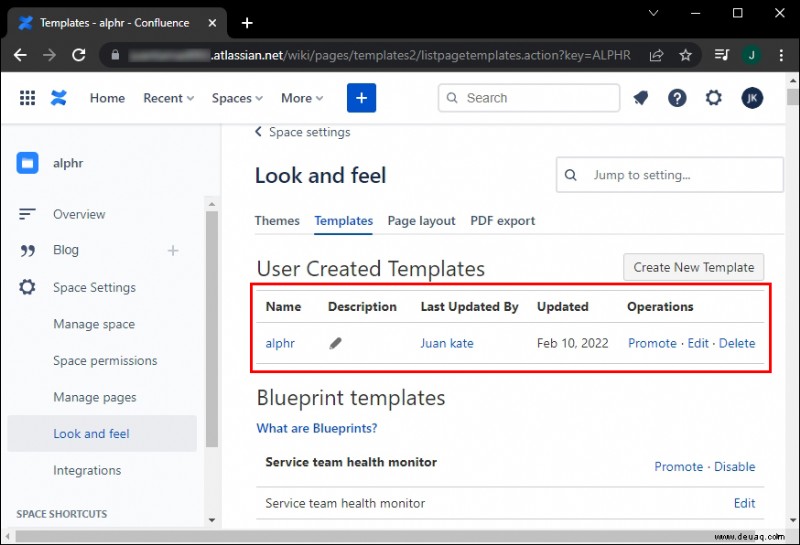
- „Bewerben“.
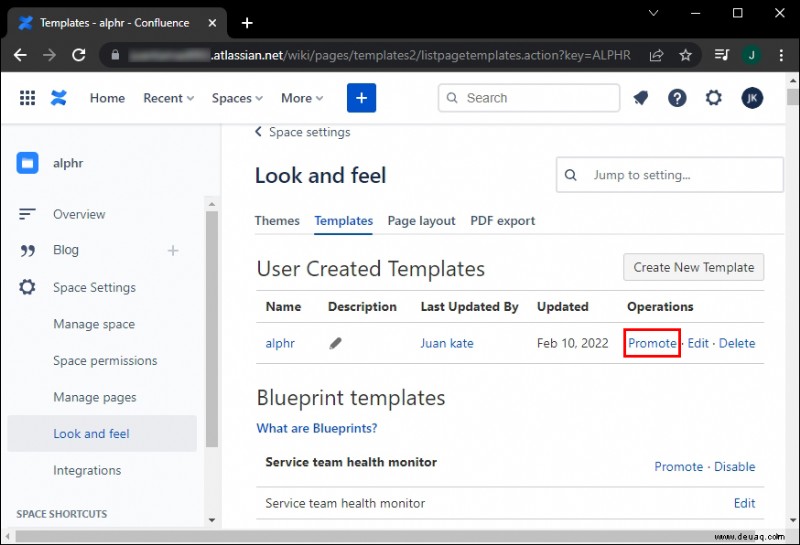
Vorlage löschen
Endgültig und unwiderruflich (Space-Admins).
- Space öffnen.
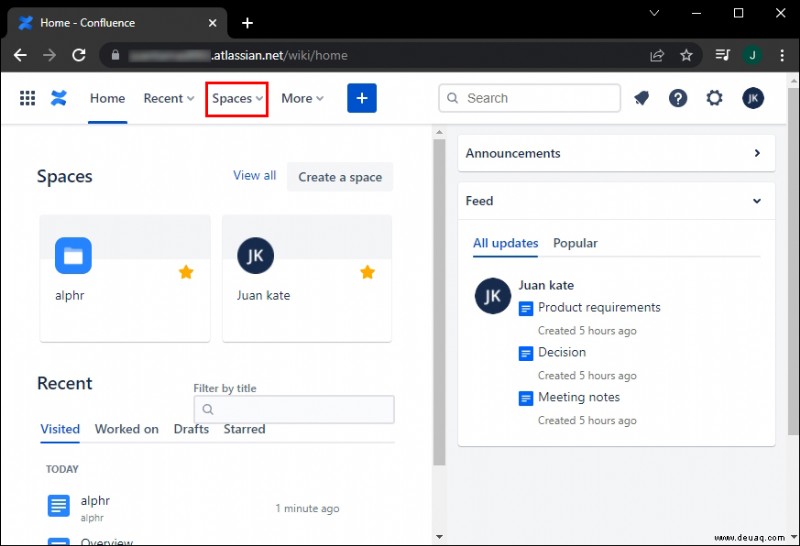
- „Space-Einstellungen“.
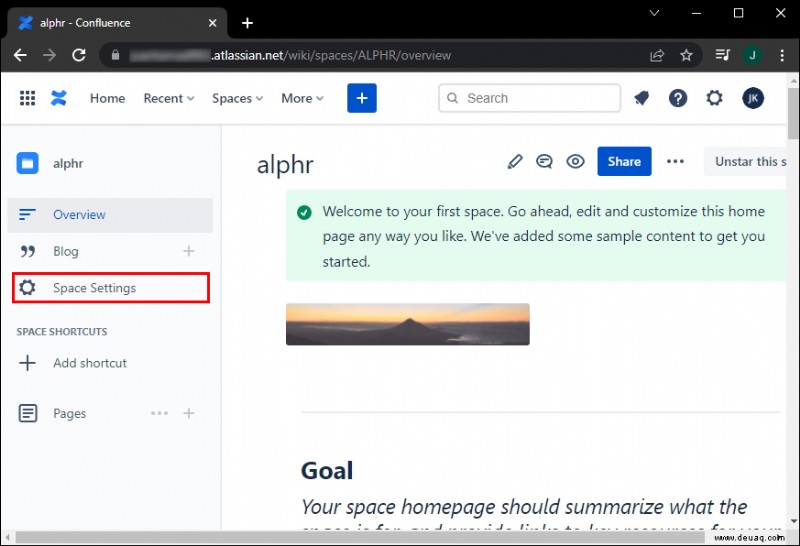
- „Vorlagen“.

- Vorlage → „Löschen“.
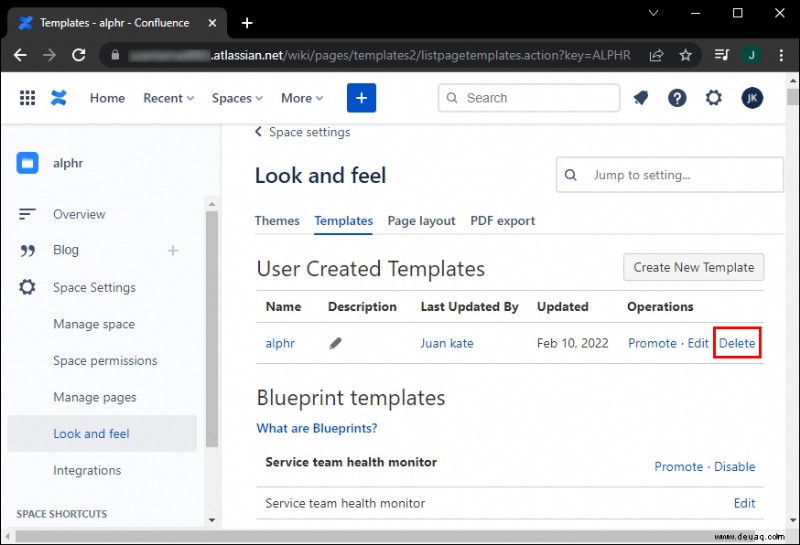
Mit Confluence selbstbewusst arbeiten
Confluence vereinfacht die Organisation von Meetings, Deadlines und Projekten. Bleiben Sie der Überblick – teilen Sie Ihre Erfolge in den Kommentaren!